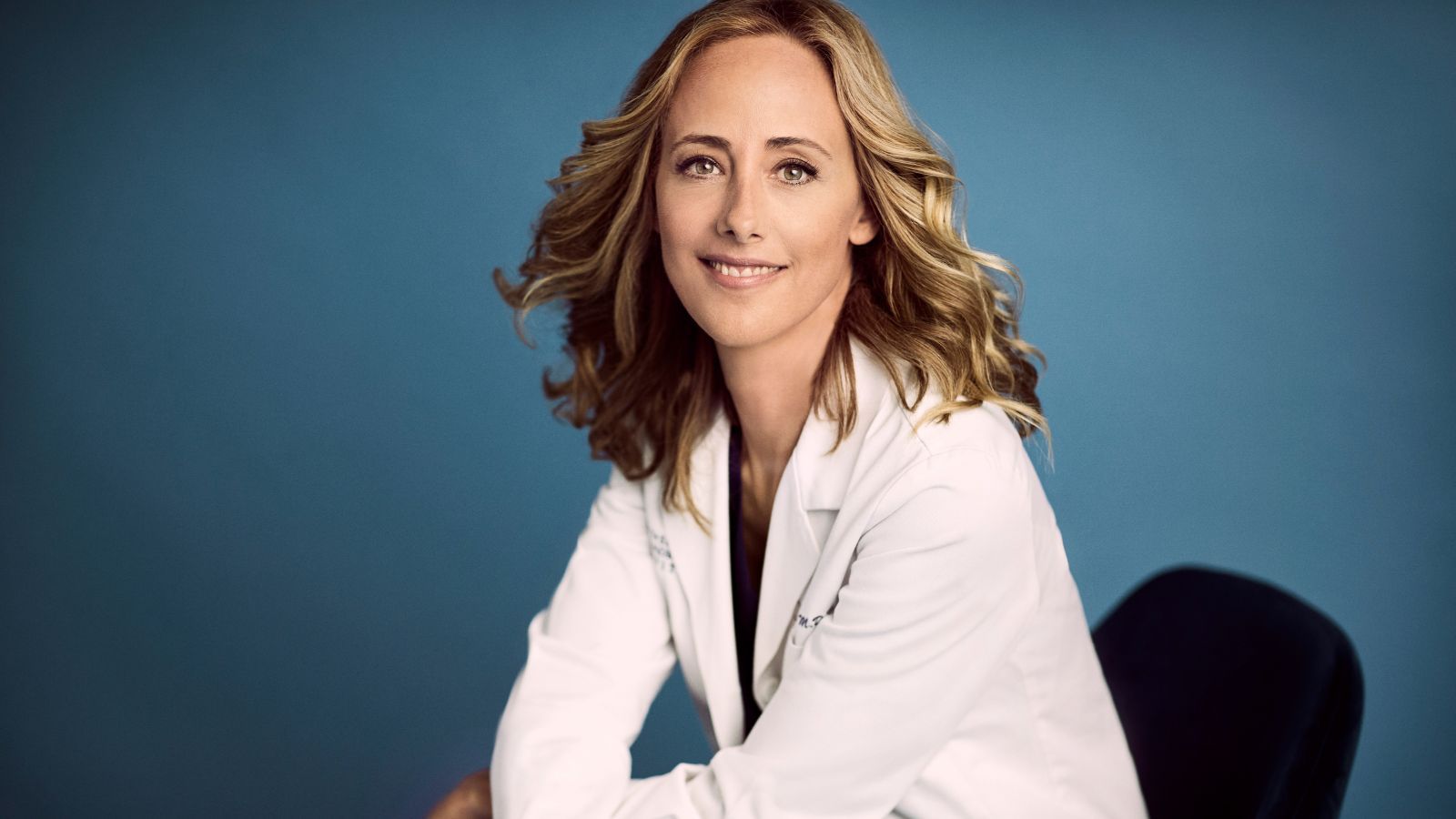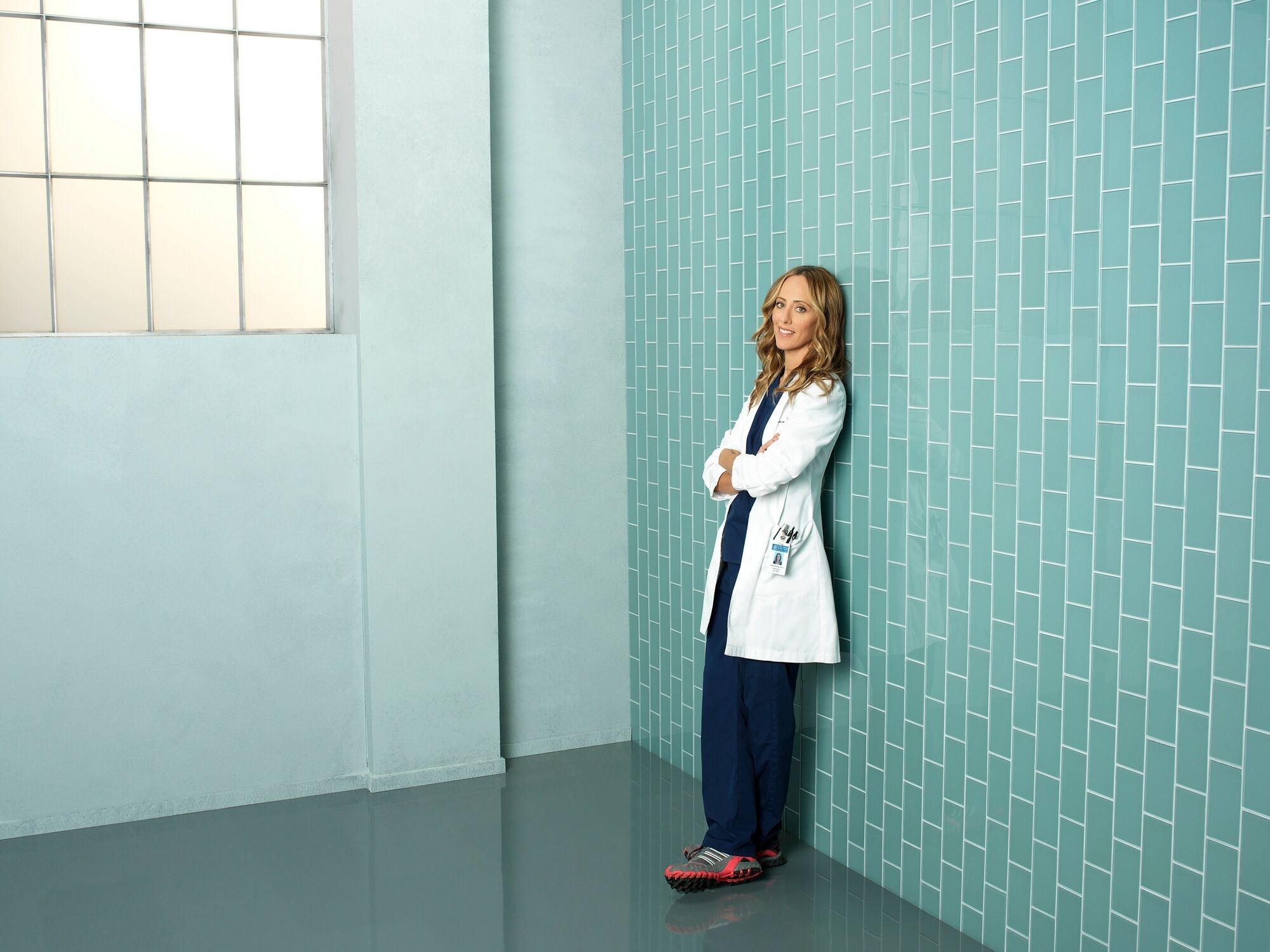Have you ever stopped to think about how fast our world is changing, especially with new technology popping up all the time? It's almost like a medical drama unfolding, but instead of scalpels, we're talking about artificial intelligence. People often wonder what the future holds for familiar places, like the bustling corridors of Grey Sloan Memorial Hospital. Well, it turns out, the ideas from someone like Sam Altman, a big name in the AI space, could really make us rethink how doctors and patients interact, even in our favorite fictional hospital.
It's a bit of a curious thought, connecting the very real, very fast-moving discussions about AI with the long-running, emotionally charged world of a TV show about surgeons. You see, the chatter around AI, especially from leaders in the field, isn't just about robots doing everything. It’s a lot more nuanced, with thoughts about how humans will still be at the center of things, just maybe working differently.
This article will explore the surprising ways Sam Altman's vision for artificial intelligence might just, in a way, show up in the operating rooms and patient rooms we've come to know so well. We'll look at what he believes about AI's direction and then, quite frankly, imagine how that could play out for the doctors and patients of Grey's Anatomy, perhaps offering a fresh perspective on medical dramas.
- Teach Me First Free
- Stella Magz Real Name
- Christine Prado Age
- Kid And His Mom Cctv Video Porn
- Preet Jatti Viralvideo Hd
Table of Contents
- Sam Altman: A Glimpse at the Mind Behind OpenAI
- Connecting the Dots: Altman's AI Vision and Healthcare
- AI at Grey Sloan Memorial Hospital: A Speculative Look
- Frequently Asked Questions about Altman Grey's Anatomy
- The Future of Medicine and Storytelling
Sam Altman: A Glimpse at the Mind Behind OpenAI
Before we jump into the speculative world of fictional hospitals, it’s a good idea to get a little bit familiar with Sam Altman himself. He is, you know, a pretty central figure in the current conversations about artificial intelligence. His company, OpenAI, is the group that brought ChatGPT to the world, which many people have tried out, sometimes just for fun, sometimes for serious work.
At the World Economic Forum's annual meeting in Davos, Switzerland, in 2024, Sam Altman shared some of his thoughts during a session called 'Technology in a Turbulent World'. He talked about where he sees AI heading in the future, which is something a lot of people are curious about. He believes that AI will help us work at a higher level of abstraction and with more capacity, meaning we could perhaps focus on bigger ideas and get more done, which is a rather interesting concept.
What's truly key to his perspective, and this is something very important, is his belief that people will still make the decisions. Even with all the powerful AI tools, the human touch, the human mind, remains in charge. This is a pretty comforting thought for many who worry about technology taking over completely. He also mentioned that as technology becomes more and more a part of our daily routines and important for driving development and prosperity, questions of safety, how humans interact with it, and trust become absolutely critical to consider.
Sam Altman: Personal Details and Bio Data
| Name | Sam Altman |
| Role | CEO of OpenAI |
| Known For | Co-creating ChatGPT, leading discussions on AI's future |
| Key Beliefs on AI | Helps work at higher abstraction, increases capacity, humans still make decisions, emphasizes safety, human interaction, and trust. |
| Recent Public Appearance | World Economic Forum Annual Meeting 2024 in Davos |
Connecting the Dots: Altman's AI Vision and Healthcare
So, you might be wondering, how does a tech leader's ideas about AI connect with the dramatic, often life-or-death situations at a place like Grey Sloan Memorial? Well, it's actually not as far-fetched as it might seem. When Sam Altman speaks about AI helping people work at a "higher level of abstraction," he's suggesting that the tedious, repetitive, or data-heavy parts of many jobs could be handled by AI. This could, in a way, free up humans to focus on the more complex, creative, or uniquely human aspects of their work.
Think about medicine, for a moment. Doctors and surgeons, like the ones we see on television, spend a lot of time sifting through patient histories, looking at scans, considering countless symptoms, and trying to piece together a diagnosis. This is, you know, a huge amount of information to process. If AI could assist with some of that heavy lifting, perhaps even flagging potential issues or suggesting possible diagnoses based on vast amounts of medical data, what would that mean for the doctors?
It could mean they have more time for direct patient care, for the truly human conversations, for developing new surgical techniques, or for tackling those incredibly rare and puzzling cases that stump everyone. This lines up quite nicely with Altman's idea that AI gives us "more capacity" and lets "people still make the decisions." The AI wouldn't replace the doctor's judgment, but it would, you see, give them super-powered tools to make those judgments better and faster. This could, arguably, change how a busy hospital operates day to day.
The emphasis on "safety, human interaction, and trust" that Altman brings up is also incredibly relevant to healthcare. In a hospital, trust between patient and doctor is absolutely everything. Any AI system introduced would need to be incredibly reliable and transparent. Patients, and even the doctors themselves, would need to feel completely confident in its suggestions. So, you know, the ethical considerations are just as important as the technological ones, especially in such a sensitive field. This is something that would likely cause a lot of discussion among the doctors at Grey Sloan, too it's almost a given.
AI at Grey Sloan Memorial Hospital: A Speculative Look
Let's imagine for a moment that Sam Altman's vision for AI starts to become a reality within the walls of Grey Sloan Memorial. How might the daily lives of Meredith Grey, Miranda Bailey, Richard Webber, and the rest of the medical team change? It’s pretty fascinating to think about the possibilities, and perhaps some of the dramatic tension that could arise from such advancements.
Diagnosis and Treatment Support
Picture this: a patient arrives at the ER with a complex, baffling set of symptoms. In the current show, the doctors might spend hours, even days, running tests, consulting with each other, and poring over textbooks. With an advanced AI system, perhaps something that looks a little like ChatGPT but specialized for medicine, that process could be very different. The AI could, in a way, quickly analyze all the patient's data – their medical history, lab results, imaging scans – and compare it to millions of similar cases from around the world.
This AI wouldn't diagnose on its own, because, as Altman says, people still make the decisions. Instead, it might, for instance, present Dr. Bailey with a list of the top three most probable conditions, along with supporting evidence and perhaps even suggest the most effective treatment paths based on patient outcomes globally. This could significantly speed up diagnosis, which, you know, is absolutely vital in critical situations. It could also help catch rare diseases that even the most experienced doctor might miss, simply because of the sheer volume of information the AI can process.
The doctors would then use this AI-generated information as a powerful second opinion, or a highly efficient research assistant. They'd still need to apply their clinical judgment, their understanding of the individual patient, and their human intuition. This is, basically, working at a higher level of abstraction – letting the AI handle the data crunching so the doctors can focus on the unique human puzzle each patient presents.
Surgical Precision and Training
Surgery is, quite frankly, a field where precision is everything. Could AI play a role in the operating room? It's a rather intriguing thought. Imagine a system that could, perhaps, analyze a surgeon's movements in real-time during a delicate procedure, providing immediate feedback on tremor, angle, or pressure. This isn't about robots doing the surgery entirely, but about giving the human surgeon an incredibly precise guide.
For surgical residents, like those just starting out, AI could revolutionize training. Instead of just observing, they might practice complex procedures in virtual reality simulations powered by AI, which could adapt scenarios based on their performance. The AI could, you know, simulate different patient anatomies or unexpected complications, giving residents a safe space to gain experience. This would, arguably, make them much more prepared for real-life situations. It also means that, perhaps, the learning curve for becoming a top surgeon could be shortened, or at least made more effective, which is a pretty big deal.
Furthermore, an AI could analyze vast amounts of surgical video, identifying best practices and common errors. This information could then be used to refine techniques across the hospital. It’s about increasing capacity and precision, still with the human hand guiding the scalpel, but with a lot more data-driven insight. This could mean fewer complications and better outcomes for patients, which is what everyone wants, you know.
Patient Care and Monitoring
Beyond the operating room, AI could transform day-to-day patient care on the hospital floors. Consider continuous patient monitoring. Instead of nurses having to manually check vital signs every few hours, AI-powered sensors could constantly track a patient's condition, identifying subtle changes that might indicate a problem before it becomes critical. This could be incredibly helpful for patients recovering from surgery or those with unstable conditions.
If a patient's blood pressure drops slightly, or their heart rate changes in a particular pattern, the AI could instantly alert the medical staff, perhaps even suggesting immediate interventions based on the patient's specific profile. This frees up nurses to focus on the more hands-on, compassionate aspects of care, rather than just routine checks. It's about letting the AI handle the data collection and initial analysis, so the human caregivers can, you know, really connect with their patients.
Also, AI could personalize patient education. Instead of generic pamphlets, an AI could generate easy-to-understand explanations of a patient's condition and treatment plan, tailored to their specific questions and learning style. It could even, in some respects, help patients manage their recovery at home by providing reminders for medication or follow-up appointments. This could improve patient adherence and overall health outcomes, which is something every hospital aims for, really.
The Human Element and Ethical Dilemmas
Despite all these technological advancements, Sam Altman's core belief that "people will still make the decisions" remains incredibly important, especially in healthcare. The emotional weight of a medical decision, the need for empathy, and the complex ethical choices involved in life-and-death situations are things that AI, at least as we understand it now, cannot replicate. This is where the drama of Grey's Anatomy would, quite frankly, continue to shine.
Imagine a scenario where an AI suggests a course of action that goes against a doctor's gut feeling, or perhaps a patient's deeply held beliefs. How would Dr. Webber, with his years of experience, reconcile an AI's cold, hard data with his human understanding of a patient's wishes? Or what about Dr. Amelia Shepherd, who often grapples with difficult choices; how would AI fit into her decision-making process for complex neurological cases? These are the kinds of dramatic questions that would, in a way, become even more pronounced.
The show could explore the very real discussions around data privacy, algorithmic bias, and the potential for over-reliance on technology. What if the AI makes a mistake? Who is responsible? These questions of "safety, human interaction and trust" that Altman highlights would become central plot points, pushing the characters to think deeply about the balance between technological progress and human compassion. It's a bit of a balancing act, you see, to integrate such powerful tools while keeping the human at the very center of care.
Frequently Asked Questions about Altman Grey's Anatomy
People often have questions when thinking about how advanced technology might blend with something as familiar as a medical drama. Here are a few common thoughts that might come up:
Is Sam Altman actually involved with the show Grey's Anatomy?
No, there is no indication that Sam Altman, the CEO of OpenAI, has any direct involvement with the production or storylines of the television series Grey's Anatomy. The connection discussed here is purely a speculative exploration of how his ideas about artificial intelligence could, you know, hypothetically influence a fictional hospital setting like Grey Sloan Memorial.
How could AI change the job of a surgeon like Meredith Grey?
An AI, based on Sam Altman's vision, might help a surgeon like Meredith Grey by handling a lot of the background data analysis, perhaps suggesting new approaches or highlighting potential risks during complex operations. This could allow her to work at a "higher level of abstraction," focusing more on the unique challenges of each patient and less on routine data processing. She would still be the one making all the final, critical decisions, which is a very important point.
What are the biggest challenges of bringing AI into a hospital setting?
Bringing AI into a hospital involves several big challenges. One is ensuring the AI is incredibly accurate and reliable, as patient lives are at stake. Another is maintaining human trust in the technology, both from medical staff and patients. There are also ethical considerations, like data privacy and how to handle situations where AI suggestions conflict with human judgment. These are, you know, pretty significant hurdles to address.
The Future of Medicine and Storytelling
The discussions Sam Altman brings up about AI's direction, particularly its role in helping humans work at a higher level and still making the ultimate decisions, provide a really interesting lens through which to view the future of fields like medicine. It's clear that technology is becoming increasingly intertwined in our daily lives, and it's also important for driving development and prosperity. Questions of safety, human interaction, and trust become critical to consider as we move forward, especially in areas as sensitive as healthcare.
The urgency Sam Altman mentions, like the "existential climate crisis" and the need to move the energy transition forward, shows a belief in technology's capacity to address huge, pressing problems. This same urgency, in a way, applies to medical breakthroughs. Just as AI could help us tackle climate change, it could also help us confront stubborn diseases and improve health outcomes on a grand scale, which is something to think about.
So, while Sam Altman might not be writing episodes for Grey's Anatomy, his ideas, quite frankly, offer a compelling glimpse into a future where technology and human expertise could work hand-in-hand in ways we're only just beginning to imagine. It's a future where doctors might still face dramatic choices, but with powerful new tools at their disposal, allowing them to focus on the truly human aspects of healing. Learn more about AI's impact on healthcare on our site, and you might want to check out this page for more insights into future technologies.
Nearly 3,000 leaders from 120 countries gathered in Davos, Switzerland, for the World Economic Forum's annual meeting 2024, where these kinds of conversations about the future of technology and its global impact took place. You can find more information about the discussions on AI at the World Economic Forum's website, which is a good reference point for these kinds of topics. The World Economic Forum is, you know, a pretty central place for these global conversations.
Related Resources:



Detail Author:
- Name : Ms. Joanny Marquardt
- Username : alison.kunde
- Email : orion.collins@yahoo.com
- Birthdate : 1991-10-18
- Address : 43024 Swaniawski Plains Suite 725 West Eulahberg, SC 32866-0890
- Phone : 319.563.7741
- Company : Abshire LLC
- Job : Armored Assault Vehicle Crew Member
- Bio : Accusamus non voluptatibus est. Et et fugit officia. Ut quasi cupiditate ut. Et sed ducimus vel reprehenderit aut aperiam.
Socials
instagram:
- url : https://instagram.com/mortonquitzon
- username : mortonquitzon
- bio : Nihil voluptas et voluptatem numquam fuga aut et. Eum aut perferendis minima provident ab nemo.
- followers : 1267
- following : 1641
tiktok:
- url : https://tiktok.com/@mortonquitzon
- username : mortonquitzon
- bio : Iusto nihil ducimus cupiditate est asperiores autem.
- followers : 3750
- following : 1731
facebook:
- url : https://facebook.com/morton_dev
- username : morton_dev
- bio : Voluptatum voluptate maiores suscipit repellendus sed odit.
- followers : 6977
- following : 2913
linkedin:
- url : https://linkedin.com/in/morton.quitzon
- username : morton.quitzon
- bio : Soluta repudiandae veritatis nemo.
- followers : 575
- following : 114